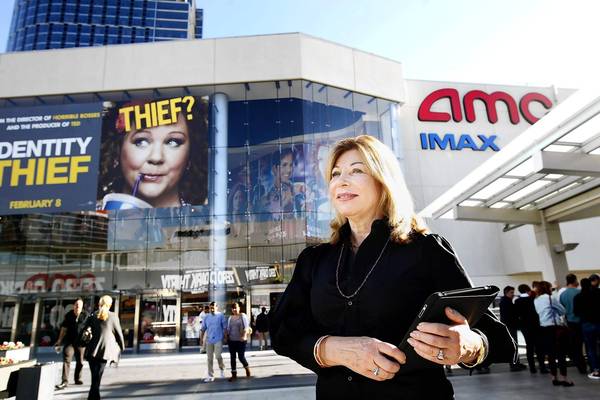In an age when the text and the tweet can destroy a movie an hour after it opens, Hollywood market research firms are scrambling to rethink the way they help movie studios promote their films.
That has created new challenges for companies such as Capstone Global Marketing and Research Inc. in Sherman Oaks, which must adapt their testing methods to the changing habits of the tech-savvy moviegoer.
"None of us knows the answers," said veteran marketing strategist and researcher Catherine Paura, Capstone's co-founder. "And when you think about the rapidity of technical change between 1990 and now, who knows what is going to happen in the next 30 years?"
Paura, 62, and her late business partner, Joe Farrell, founded Hollywood powerhouse National Research Group 35 years ago. Paura and Farrell, who died in 2011, sold the firm in 1987 but ran it until 2003.
Such market research companies typically used phone calls, door-to-door surveys and post-screening evaluation cards to help movie studios determine how to tweak their movies and promotional materials to ensure the best possible box-office results.
But in the decade since Paura left NRG, Facebook, Twitter and the iPhone have rapidly changed the way consumers communicate, making word-of-mouth a key factor in determining weekend box-office sales and diminishing the value of traditional research techniques.
"It's a moving target," agreed former Walt Disney Studios Chairman Dick Cook, who knows Paura's work well. He calls the business of movie research "compelling and crazy."
Paura and her sister, Angela, launched Capstone a year ago to provide worldwide market analysis to such clients as Warner Bros., Sony Pictures, DreamWorks Studios and Relativity Media.
Capstone's surveys are partly designed to examine alternate entertainment choices, including video games and online streaming, Paura said. Questions no longer ask simply whether a person will see a movie, she said, but what actor makes them less likely to buy a ticket or how the previews make them feel.
Among Capstone's initiatives is a market research study called "Moviegoers in Theaters."
Last fall, Capstone sent researchers into eight cinemas across the country to talk directly to filmgoers, something that's almost never done. Pollsters asked more than 10,000 audience members a few demographic questions, then asked them to complete an in-depth online survey.
More than 1,200 people responded — a larger sample size than most market researchers typically use.
The age makeup of those surveyed skewed older than it would have 20 or 30 years ago, Paura said. Industry surveys increasingly focus on the oldest quadrant of moviegoers.
Baby boomers are still going to the movies, shifting what for decades has been a youth-dominated business. When NRG started, the company didn't sample moviegoers older than 49. Now, research includes up to those in their mid-60s.
"You can have a big hit and not find one teenager in the audience," Paura said. "That didn't used to be the case." Old and young audiences now go to the movies with roughly the same frequency. Baby boomers, she said, never got out of the habit of going to the movies.
Studios are working harder to create movies that appeal to everyone. For the films that don't, they believe it's best to aim campaigns at specific age groups.
DreamWorks Chief Executive Stacey Snider has begun looking at data that create hypothetical profiles for a targeted audience member, including education, income levels and where someone shops.
"A movie today has to matter to somebody," said Snider, who has worked with Paura for nearly 20 years.
.gif)




.jpg)


